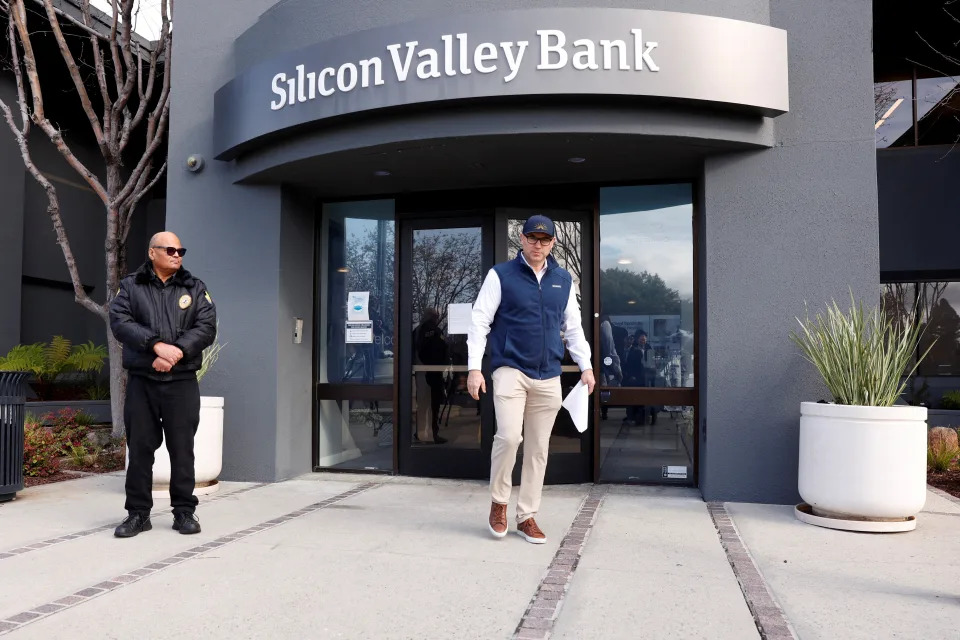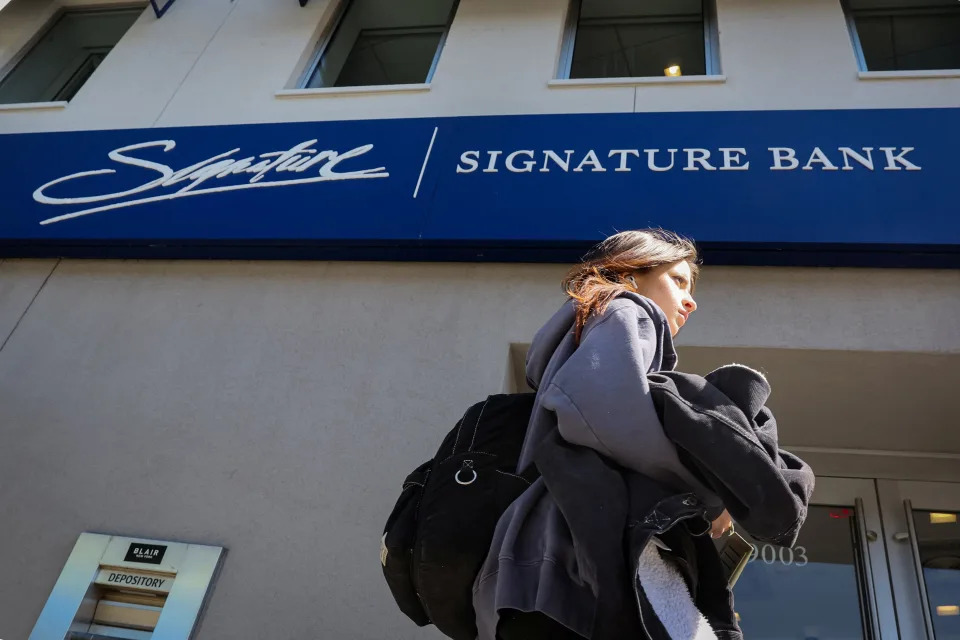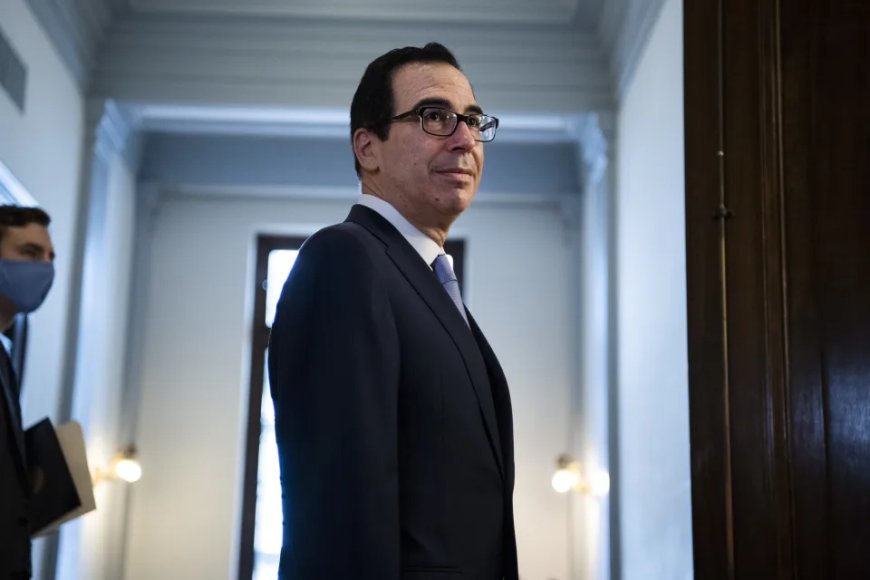Former Treasury Secretary Steve Mnuchin is making a bold move, betting that regulators don't want New York Community Bancorp (NYCB) to become the next Silicon Valley Bank (SVB). His investor group recently completed a $1 billion deal to inject fresh capital into the troubled lender, just days before the one-year anniversary of the government's seizure of SVB, which triggered widespread panic in the banking system.
Mnuchin's Calculated Gamble Mnuchin's move appears to be a calculated gamble, as he claims to have had "extensive" conversations with the Federal Reserve and the Office of the Comptroller of the Currency, who reportedly supported the capital injection. The rationale behind this support is likely rooted in the lessons learned from the SVB upheaval a year ago.

Regulators' Lesson from SVB: Early Intervention In the aftermath of the SVB failure, regulators realized the importance of early and effective interventions to address problems at individual banks before they escalate to a critical point. Federal Reserve Chair Jay Powell acknowledged that the Fed was "not quick enough" and "not effective enough" in its supervision of SVB, emphasizing the need for "earlier interventions and more effective ones" going forward.
Avoiding Deposit Insurance Fund Burden Apart from averting potential market panic, a private solution for a troubled lender like NYCB is generally preferable and cheaper for the wider banking system than a public intervention. Mitchell Glassman, an adviser with Secura/Issac, stated that from the FDIC's standpoint, "anytime you could have an open bank solution that doesn't involve the Deposit Insurance Fund, that's a good thing." John Popeo, a financial consultant and former FDIC attorney, added that no one "wants to undertake that burden if they can avoid doing so."
The Cost of Bank Failures The cost of the SVB and Signature Bank failures in March 2023 was substantial. Big banks paid billions in the fourth quarter to cover the losses absorbed by the Federal Deposit Insurance Corporation (FDIC), and the FDIC recently revised its total loss figure from those failures upward by roughly $4 billion, to $20.4 billion. Banks will likely have to pay billions more to address the losses.

Commercial Real Estate Concerns One of the primary concerns haunting banks in 2024 is the potential impact of commercial real estate exposures, particularly related to half-empty office buildings and multifamily apartment complexes that may be worth less than their pre-pandemic valuations. Powell acknowledged that the Fed is working with banks to ensure they have sufficient liquidity and capital to absorb potential losses from these exposures, stating, "We are trying to stay ahead of it on a bank-by-bank basis, and so far we have been able to do that."
NYCB's Predicament and Rescue Ironically, a year ago, NYCB played the role of a rescuer, agreeing to absorb assets from the seized Signature Bank. However, this pushed NYCB over the $100 billion asset threshold, subjecting it to heightened regulatory scrutiny. NYCB cited these tighter requirements as the reason for slashing its dividend and setting aside more for future loan losses in January 2024, which triggered a stock slide until Mnuchin's rescue announcement.
Mnuchin's Investment and NYCB's Future Plans Mnuchin's $1 billion infusion resulted in a 6% stock rise for NYCB on the day of the announcement. The new CEO, former Comptroller of the Currency Joseph Otting, aims to diversify NYCB's loan book, with one-third in consumer, one-third in companies, and one-third in real estate. Currently, over 44% of its loans are tied to multifamily properties, including many rent-regulated apartment complexes in New York City.
Achieving a better balance may require additional private solutions or potential divestitures of commercial real estate loans, according to Jonathan Winick, CEO of Clark Street Capital. Otting acknowledged the need for more time to develop a vision for the bank's future, which will be shared during the first-quarter earnings report.
Analysts' Perspectives and Stock Performance Ebrahim Poonawala, an analyst covering NYCB for Bank of America, cautioned that "there is heavy lifting ahead, and the shape, timing, and probability of success of any potential turnaround remains an unknown." Despite Mnuchin's investment, NYCB's stock dropped 7% on Friday, closing at $3.42 per share, though still above the $2 per share price Mnuchin and his group agreed to pay.
Mnuchin's billion-dollar bet on NYCB represents a bold attempt to prevent another bank failure while capitalizing on regulators' determination to avoid repeating the mistakes of the SVB crisis. As the banking industry navigates the challenges of commercial real estate exposures and the aftermath of recent failures, Mnuchin's move highlights the importance of private sector involvement and the lessons learned from past crises in shaping the regulatory response and the future of the financial system.








